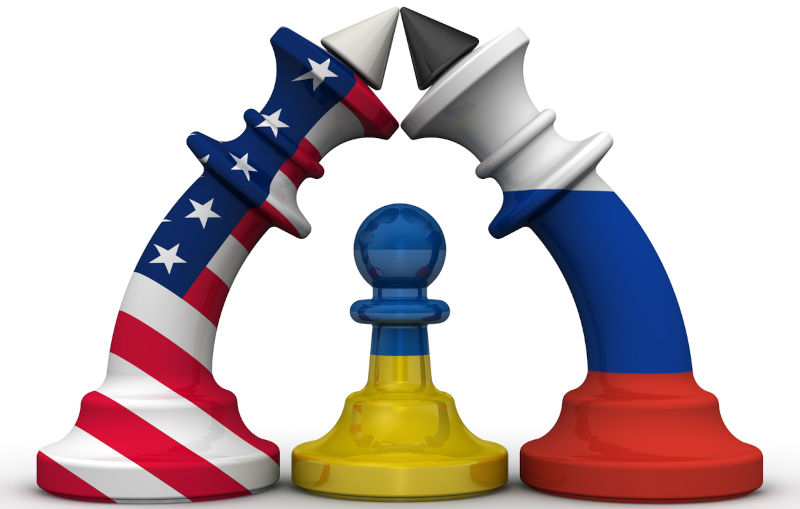Russia has learned not to trustAmericasfalsepeace overtures
December 5, 2023
Western capitalsnowopenlyacknowledge the reality that their proxy war in Ukrainehasrun out ofsteam.Desperatenew policydirectionsare beingdiscussedin NATO circles. But a decision to end the war will be taken only byMoscow.
An article by Big Serge, Russo-Ukrainian War: The reckoning on 16 November 2023 offered an in-depth detailed analysis by a military expert of how the war is going. In summary, Big Serge claims that the war has reached a stage when:
despite Russias many obvious advantages (which in the end come down to a superior indigenous capacity to mobilize men, industrial output, and technology), itbecame propaganda to argue that Russia was going to achieve some sort of victory in Ukraine - that Ukraine would end the war having failed to re-attain its 1991 borders (Zelenskys stated victory condition) and with the country in a wrecked state of demographic hollowing and material destruction.
At last, we seem to have reached adenounementphase, where this view - allegedly an artifact of Kremlin influence, but inrealitythe most straightforward and obvious conclusion - is becoming inescapable. Russia is a bigger fighter with a much bigger bat.
_The Economist_lead articleon 29November(Russiais poised to take advantage of political splits in Ukraine politics has returned, but the fighting has gone nowhere) came to similar gloomy conclusions.Relations between President Zelensky andmilitary commander-in-chiefZaluzhnyaresaidtobe terrible.A blame game is now underway about who isresponsible for the failure ofKievssummer counter-offensive which wentnowhere at hugeand tragiccost in Ukrainian lives and weapons.Public trust in the president has fallen to a net +32%, less than half that of thestill popular GeneralZaluzhny(at+70%).
The Economistclaims that Russia is already trying tocapitaliseon the ambitions and tensions in play now in Kiev.But itadmits that Russian propagandahas gained traction because it has material to play with:corruption, ineffective management, incomplete mobilization.
A much-discussed article by Seymour Hersh on 2 December (General to General, Substack paid) reported leaks to him from unnamed US officials that secret peace discussions are already underway between Generals Gerasimov and Zaluzhny, and that Ukrainian acquiescence in the loss of Ukrainian territory already occupied by Russia followed by Russian acceptance of Ukraine joining NATO is the package under discussion.
It is clear from my reading ofLondon andWashington media thatWashington elitespeculationonthe need for policy changein Kievtowards greater realism,andpossibly accompanied by US-engineered regime change there,is nowmounting.Zelenskys usefulness to the US may be coming to an end.
There isgrowingspeculation, e.g, Hersh, that aZaluzhny-supportednew governmentin Kievcould crediblyenter intopeacenegotiations withMoscow,framed bythe present military and political situationin the war;andthat Russia would keepCrimea and all the areas it now holds inLugansk, Donetsk,Zaporizhieand Kherson oblasts.Oncesuch an outcomehad been agreedwith Russia, the diminished state of Ukraine no longer at war with Russia couldbequickly and legally fast-tracked intoNATO and thereafterenjoy thesecurityprotectionsof NATOsArticles 1 and 5.
With UkrainesafelyinNATO, anyfurther outbreak of fighting between Ukraine and Russia would by necessity bring inas combatantsthe other front-line NATO states: Romania, Poland, the threeBalticStates, maybe Finland as well.The theory is that with the active militaryparticipationof theseNATOcountries especially of well-armed and well-motivated Poland the West couldhave more success incontaining Russian aggression,i.e.acting aggressively towardsRussia,than it has had in theRusso-Ukrainian warwhichhasnot gonewell forKievsince the Russian strategic recast in September 2022.
It is argued by some in the West now that onlyZelenskys obstinacy stands in the way of such a desirablepeace process.The Ukrainian people are desperate for peace and would be ready togive up claims to Crimea and the four lost provincesfor the sake of peaceunderaNATOsecurity guarantee.
What couldgo wrongwith this scenario? In my opinion, a great deal.
First and foremost, itsutterunacceptability to Russia. Russias mainobjectiveinstarting theSpecial Military Operationon 24February2022 was toreturn Ukraine toatreaty-guaranteedneutralitybetween East and Westthat had prevailed before the 2014 Maidan coup.It has been a basic objective of Moscowsince 1991to keepUkraine out of NATO.Russia would have no reason, now that Russia is on the cuspof winning the war decisively, torisk orcompromise this objective.Too many lives have been lost on both sides in thisessentially,as Russia sees it, fratricidalwar.
Russia knows thata future anti-Russian Banderist administration inKiev, protected by NATO membership,could provoke resumed hostilities with Russiawheneverit and itsWashington patronsthought the time was ripe, as they did in early 2022; but this time, with theNATOfront-linestates necessarilybrought into the fightingas Ukraines military allies.Meanwhile, NATO plus Ukraine could keep the pressure up on Russia,byfurther remilitarizingEastern European statesagainst Russia.
Secondly, theemergingpublicscepticismintheNATOfrontline states themselves. Hungary andSlovakiaalreadyhaveopposedsuch aplan. The Czech Republic is wobbly. Even in Polandand theBalticstates,there are emergingvoices pointingout the dangers to them of letting Ukraine intoNATO.Evenin Western Europe (as seen by therecent electoralsuccess of GeertWilders in theNetherlands, andMacronsincreasingscepticism), anti-NATOviewsaregaining force.
Might this trial balloon then be more ofa US/UKinformation warfareploy: an attemptto wrong-footRussia in the courtof worldopinion?
Such ascriptmightrun:WeintheWest are genuinely trying to bring peace inUkraine. We have removed thefailed Zelenskyand installed a realisticpro-peacegovernment in Kievthat acceptsunavoidablelosses ofterritory,andwants now tojoinNATO and enjoyfull NATO protection. Isntthis the best roadto peacenow?Would notRussia beintransigentif itrejectssuch astablepeace?
This scenario is possible. I can only trust that Russiaand its friends inChina and the Global Southwill continue to see throughand exposetheessential deceptionof any such Western ploy.
Russia has effectively won this tragicwar. It willnot let itself be fooledby aregimechangein Kievmanipulated byWashington and London, trying desperatelyto snatch some sort ofdiplomaticvictory out oftheirmilitary defeat in Ukraine.
Russia has learned not to trustAmericanfalsepeace overtures.It remembers the treacherous Minsk peace accords process.It remembers thatBorisJohnsonwas sentto Kiev inApril2022 to destroy apeace agreementinitialledby MoscowandKiev negotiators inIstanbul:400,000Ukrainian livesand muchformerUkrainian territory would have been saved had thatpeace agreement been upheld by the West.But the USand UK wantedthewarto proceed:theythought theyhad made Ukraine strong enough toexhaust Russiain warandtoprovokeregime change there.How wrong they were, and how the people of Ukraine have paid.
Russiawill beon itsguardthis time. Russian morale is excellent.The war will continue untiltheRussianNationalSecurityCouncilled byRussias President decidesthat it is safefor Russiato bringthe wartoan end.

